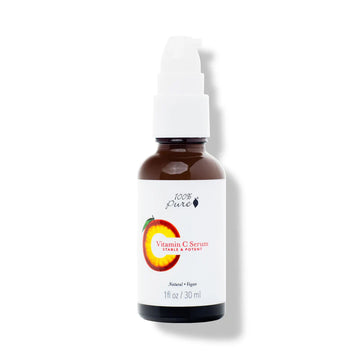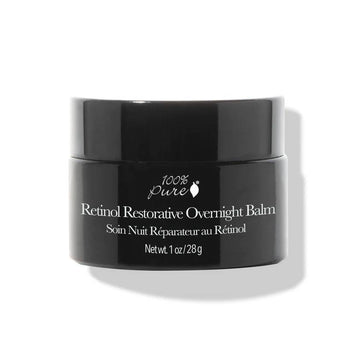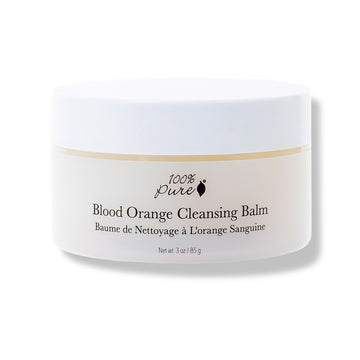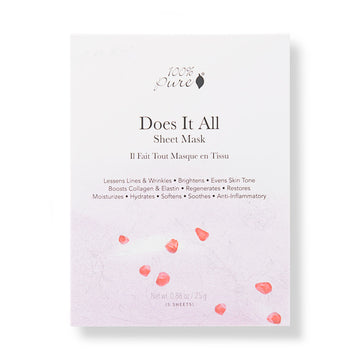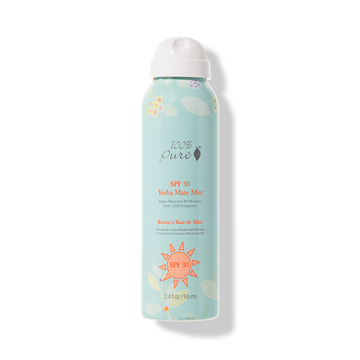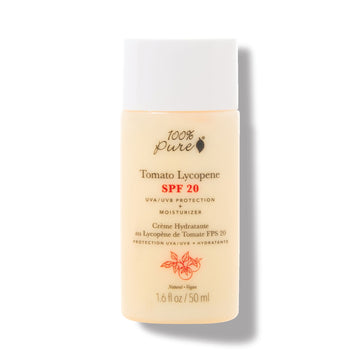When it comes to caring for your skin, think you’ve got it down? Put your knowledge to the test with this helpful skin care guide!
Written by: 100% PURE®We all love our skin. How can we repay it for working full time as the largest and most vulnerable organ in our body? Implementing a proper skin care routine is step number one. Managing diet, sleep, alcohol intake, and sun protection are the next major factors to be considered in keeping your beloved skin healthy and happy. We’re highlighting the biggest do’s and don’t of healthy skin care, to give you and your skin the best chance at success!
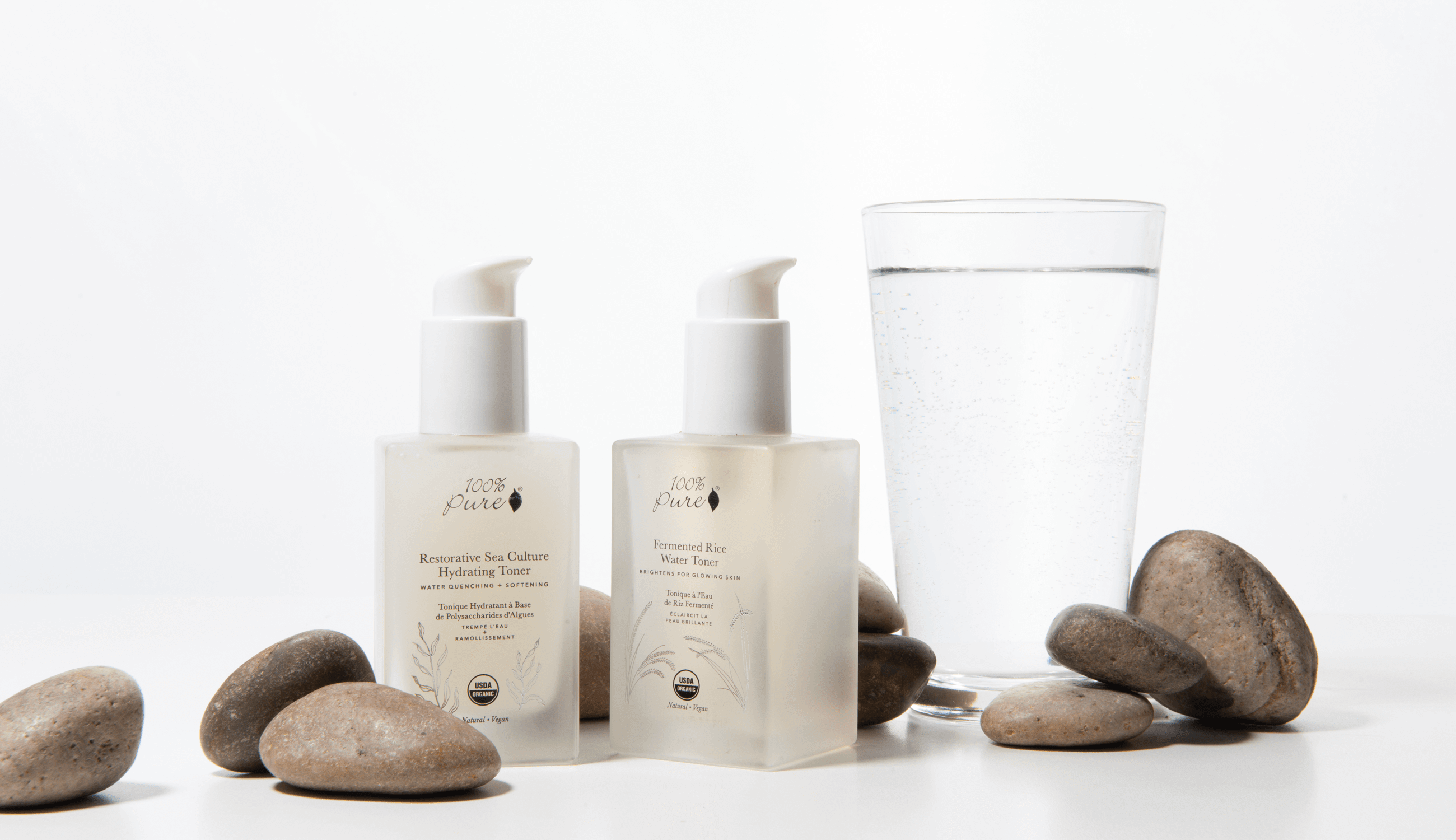
Hydration
Water inside and out
One important factor that many forget about when it comes to caring for the skin is hydration, inside and out. It is essential for the skin that you drink plenty of water daily -- so time to dust off that cute Bkr bottle and put it to use! When your body is well hydrated, your skin benefits by appearing more youthful, vibrant, and glowy. This means your skin cells are getting the hydration they need internally, resulting in plumper, smoother, and more radiant skin externally. When you’re not drinking enough water, your skin can appear more sallow, fine lines may become more apparent, and your skin may be drier and more dull.
It’s also incredibly important to use hydrating skin care products on the surface of skin, no matter what skin type you have. The skin is alway prone to transepidermal water loss -- the process of internal hydration being drawn from the skin and into the environment via evaporation. Our mega hydrating natural toners and natural moisturizers can help lock in moisture and maintain hydration.
Alcohol
Drinking too much alcohol can cause dehydration in the body and, as a result, in the skin. It can cause your skin to look dry and dull, and can cause inflammation that leads to redness. Excessive drinking over long periods of time can even lead to chronic skin issues like rosacea. It can also cause bloating in the body, which means a puffy-looking face. No thank you!
Dehydrating beverages
Too much caffeine (coffee, soda, tea) can also cause dehydration in the body. Overdoing it with your favorite caffeinated beverages (meaning multiple servings a day) will definitely have an effect on your skin. Drink these beverages in moderation, and make sure you’re also drinking plenty of water in between. Staying hydrated will help to flush out toxins, which will keep your complexion in prime condition. Just remember that if you’re dehydrated, your body will have a difficult time purging toxins, and the effects of these trapped toxins will begin to impact your health and skin.
Bacteria
Touching your face
This one is tough, since we often don’t know we’re doing it. But your hands touch so many different objects and surfaces that they’re able to can carry tons of germs with every touch. Always wash your hands for at least 20 seconds before touching your face to reduce bacteria and germs. Try your hardest to resist touching your face throughout the day, and NEVER pick at your skin! Dirt and bacteria trapped under your nails and on your fingertips has a direct passage into your pores if you break or open the skin by picking or popping. Trying to squeeze or pick at blemishes only makes skin more prone to germs and breakouts, not to mention you can spread the bacteria from the blemish to other areas of your face -- resulting in more blemishes!
Dirty pillow cases, towels
We use linens on our faces daily, but often times people do not realize that these linens can be filled with germs and bacteria. Washcloths, towels, and pillowcases are the most common linens that our skin comes into contact with. Making sure to use clean washcloths and towels when doing your daily skin routine, will help to prevent bacteria from coming in contact with your skin, which will help to prevent from future breakouts. We sleep on our pillow cases every night and oils from the skin and hair are absorbed into the fabric as well as germs and bacteria. Dermatologists recommend that you change your pillow cases at least once a week, and if you suffer from bad acne you may even want to change them daily.
Using cell phones
Your phone touches your face every time you take a call. With touchscreen smartphones, these days we are constantly touching and tapping screens with less-than-clean hands. When we talk on the phone, we’re putting those germs right up against the surface of our face. We already mentioned germs on hands, so you know what that means for your phone. To help keep bacteria and germs at bay, you can regularly use a cleansing wipe appropriate for your phone, or use a soft cloth with a solution of 40% Isopropyl alcohol and 60% water.
Makeup tools, sponges, cleansing brushes
Do not forget: makeup brushes need to be cleaned on a frequent, regular basis. Dirty brushes can harbor lots of bacteria, especially if made with non-antibacterial animal hair. Our Cruelty free brushes are a much safer option because they’re made with taklon fibers that are antibacterial, and that don’t harm our furry friends!
Facial cleansing sponges and brushes, and well as makeup sponges should be cleaned thoroughly after each use and left to air dry. They should also be replaced regularly: 3 months for facial sponges and brushes, and 1-3 months for makeup sponges depending on frequency of use.
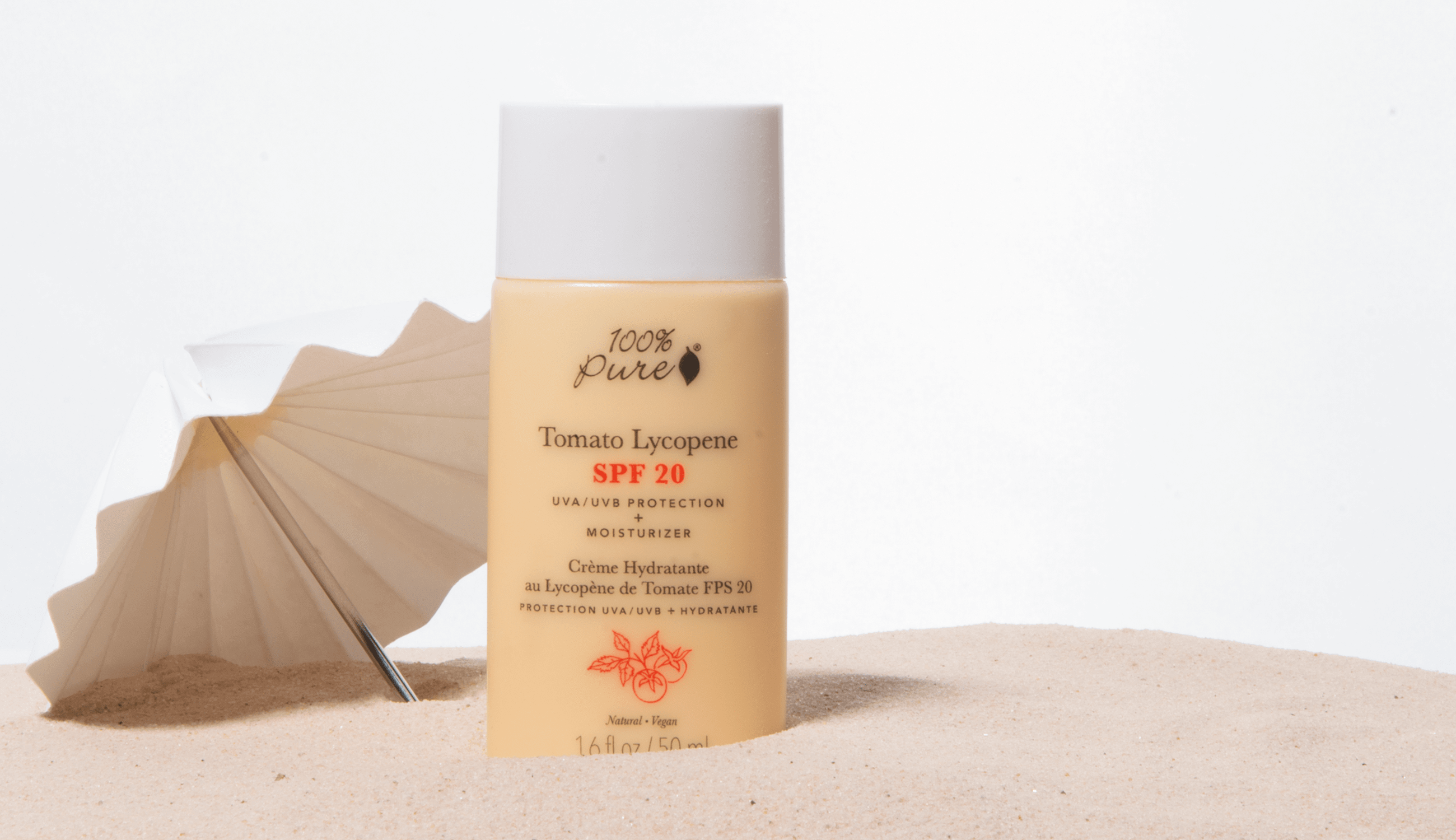
Sun Exposure and Protection
Spending time in the sun without protection, or even sun tanning in a machine, are some of the worst ways you can torture your skin. UVA rays cause aging in the skin, which can prematurely deplete youthful properties in the skin like suppleness, elasticity, and glow. UVB rays cause the skin to burn, which can result in painful sunburns, and also make the skin more prone to serious and frighteningly common side effects like skin cancer. Make sure you protect your skin daily by using an SPF. Our Tomato Lycopene SPF 20 Moisturizer is a facial moisturizer and sun protectant combined; a great item to include in your daily skin routine. Spending the day outdoors? Try our Yerba Mate Mist SPF 30 spray for all over the body.
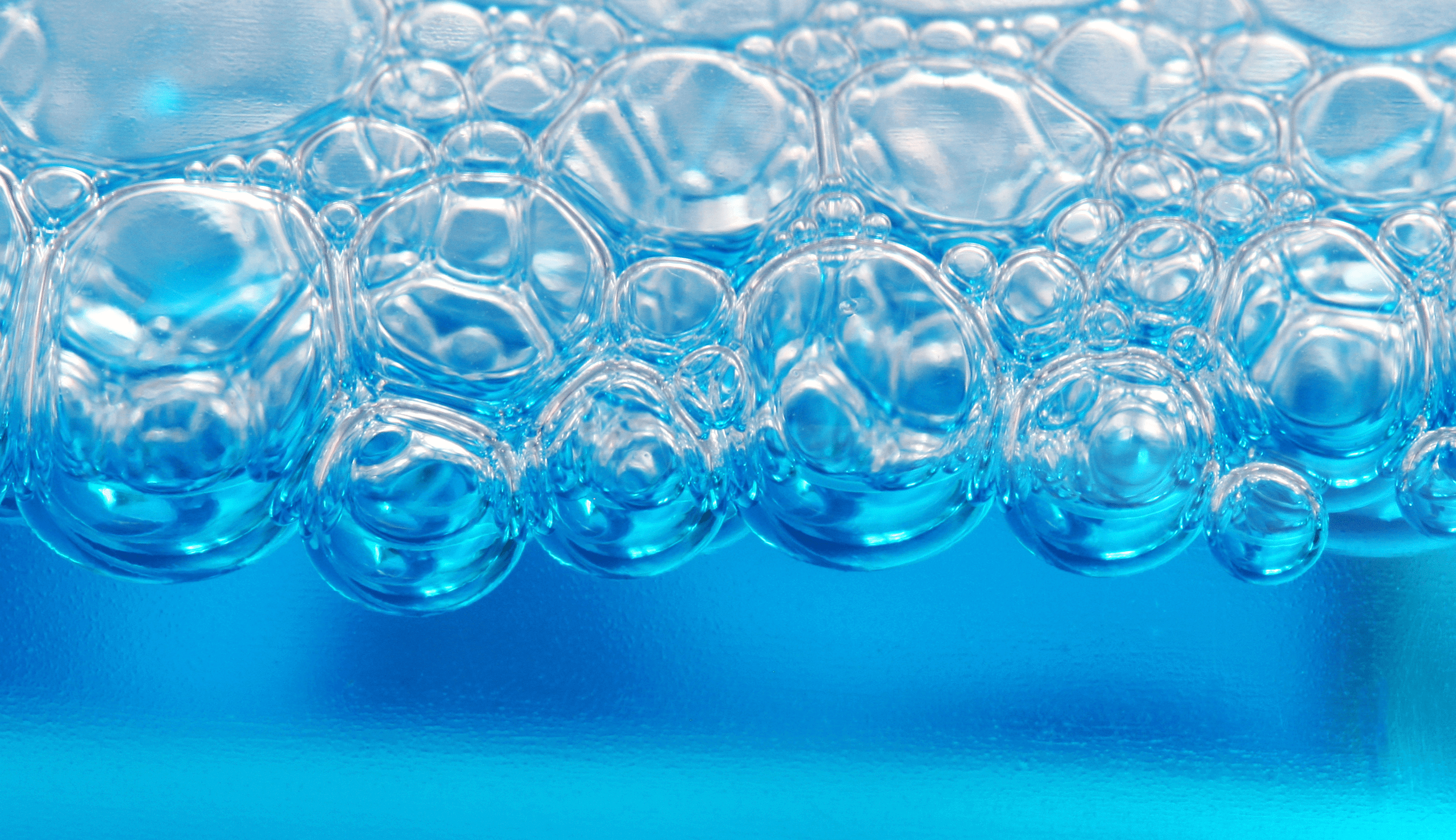
Skin Stripping Ingredients
Many conventional skincare products and cosmetics can contain skin stripping chemicals. sulfates like Sodium Lauryl Sulfate and Sodium Laureth Sulfate are most used in cleansers. They strip skin of its own protective barrier, and damage the delicate lipid layers which keep skin supple and smooth. Other harsh detergents can also disrupt skin’s natural moisture balance and sebum production, leading to dry or irritated skin. Products like conventional acne astringents can also have skin stripping effects, thanks to harsh, drying ingredients like isopropyl alcohol.
Using Cosmetics Correctly
It’s important that when you wear makeup during the day, you remove every last trace of it at night before bed. Sleeping with makeup on can make your skin more prone to clogged pores and breakouts. Removing makeup, impurities, and bacteria through thorough cleansing can keep your skin in prime condition. Our Blood Orange Cleansing Balm will way to melt away makeup and its unique cleansing routine helps to increase blood flow in the skin. It’s our top pick for a luxurious, skin pampering way to end the day.
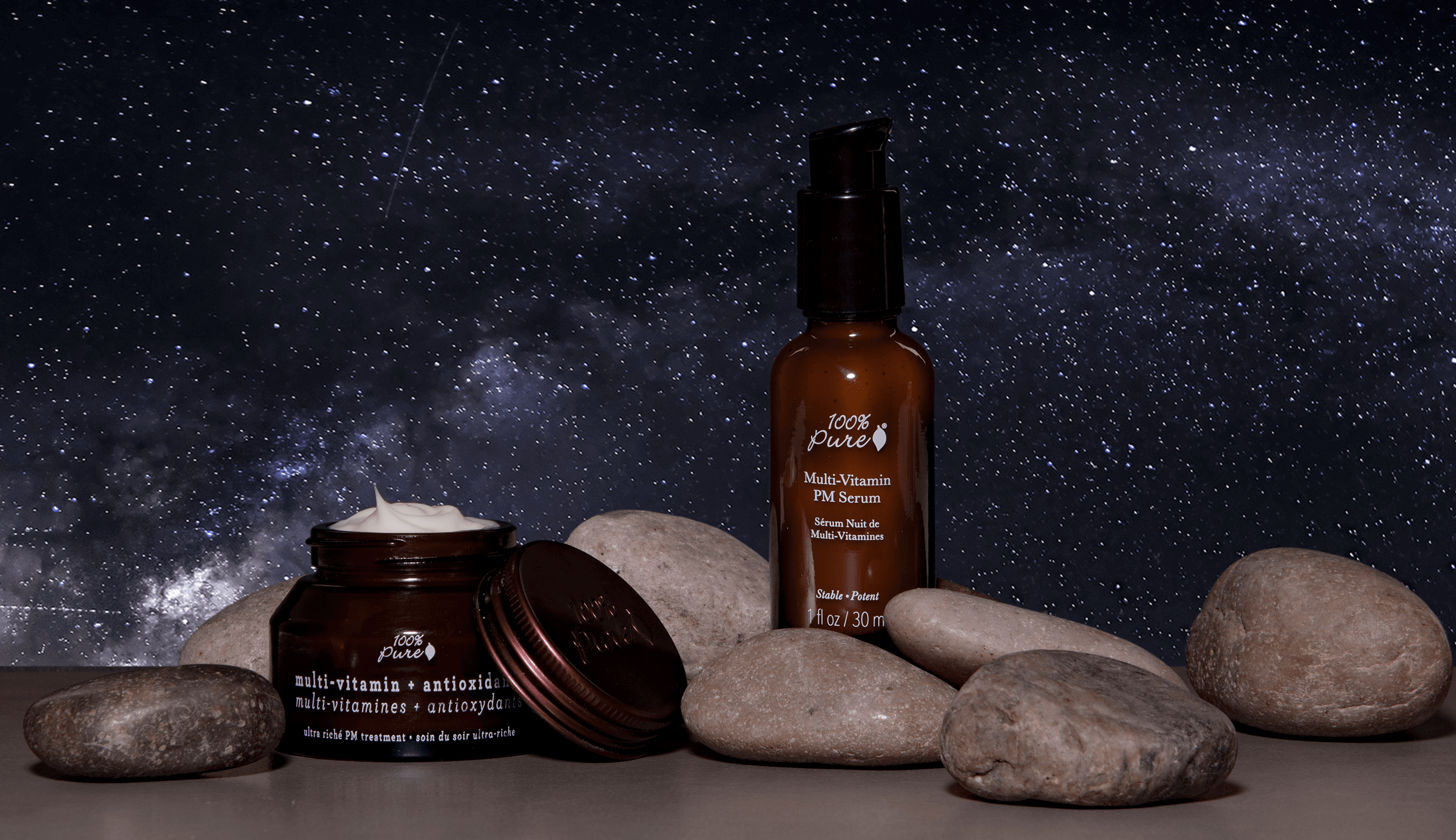
What’s Affecting Your Skin?
Diet
Diet is a super important, yet often ignored factor in maintaining great skin. Eating a healthy diet full of colorful, natural and organic, nutritious foods will help to keep the skin in prime condition. On the flip side, a poor diet can cause skin problems like acne, rosacea, irritation, dryness, skin sensitivity, and other skin ailments. Eating healthy fats can help the skin maintain its natural protective barrier. Fruits and veggies provide antioxidants and vitamins that help to prevent early signs of skin aging from harmful free radicals and environmental exposure.
Sleep
Beauty sleep really does exist! If you don’t get regularly get enough Z’s, it can start causing problems for your skin. During sleep the skin repairs itself, producing wrinkle-minimizing collagen. Ample sleep also brings blood flow to skin, making it appear more glowy, and your eyes brighter and less puffy! Getting less sleep makes you more prone to wrinkles, a dull complexion, and dark, puffy eyes. All the more reason to get your beauty-regenerating Z’s!
Overdoing it
Over cleansing, over exfoliating, and over using or misusing certain products can compromise the protective skin barrier, cause sensitivity, and even make your skin prone to sun sensitivity. Make sure to keep your exfoliating to 2-3 times a week max, and use gentle exfoliants rather than products like apricot kernel scrub, or buff puff pads. Use products with retinol, vitamin A, and vitamin C properly (only at night), to prevent sun sensitivity, and always, always, ALWAYS use an SPF during the day.
We carefully hand-select products based on strict purity standards, and only recommend products we feel meet this criteria. 100% PURE™ may earn a small commission for products purchased through affiliate links.
The information in this article is for educational use, and not intended to substitute professional medical advice, diagnosis, or treatment and should not be used as such.



